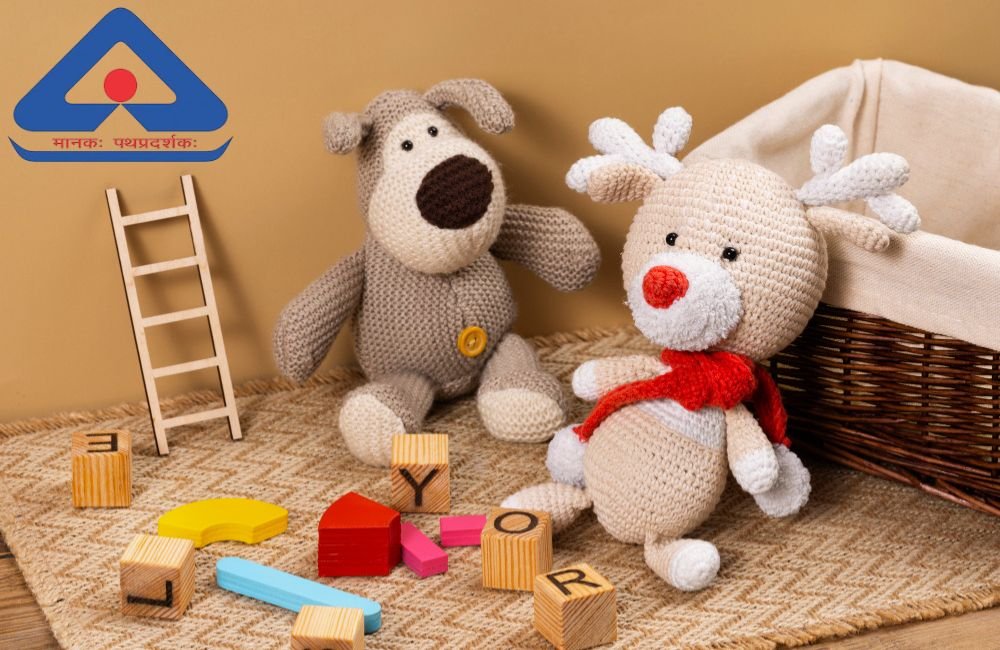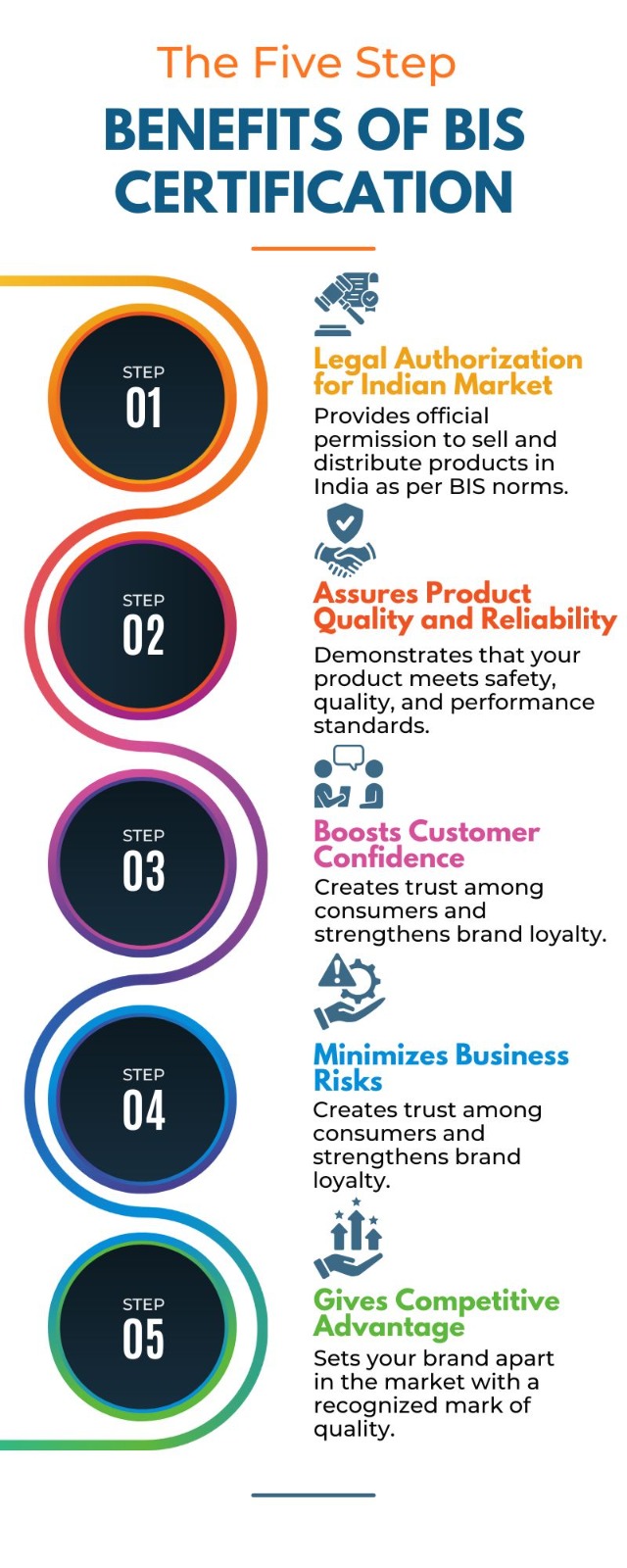Get A Quote
BIS Certification for Toys
The Ministry of Commerce and Industry issued the Toys (Quality Control) Order 2020, making BIS certification mandatory for both electrical and non-electrical toys. Manufacturers must meet the prescribed Indian standards to produce and sell toys in the Indian market. Toys failing to meet these standards cannot be legally sold or distributed in India. Get BIS certified with ease—partner with EVTL India today!

BIS Certificate for Toys - Overview
Safety is most important while dealing with toys for children. Dangerous toys can create serious hazards like choking, bodily injury, and health hazards from poisonous plastics, paints, or fabric materials. To combat this, the Bureau of Indian Standards (BIS) releases stringent safety specifications through BIS certification for toys to ensure that toys must comply with the requirements of physical, mechanical, chemical, and electrical safety. The standard specifications must be compatible with global requirements by organizations like ISO and IEC to safeguard children from hazards.

A BIS licence is a mandatory requirement for both electrical and non-electrical toy manufacturers in India. Toys carrying the ISI Mark (a symbol of quality and safety) can only be imported or sold in the Indian market. If a manufacturer wants to manufacture and sell toys in India, they must comply with the required Indian standards as mandated by the Bureau of Indian Standards. BIS has categorized the Indian standard for the safety of electric toys under IS 15644:2006. While non-electric toys must comply with the safety standards outlined under IS 9873 (Part 1 to 9).
Toys Quality Control Order (QCO), 2020
The Ministry of Commerce and Industry, Government of India, introduced the Toys Quality Control Order (QCO) in 2020 as part of the BIS Act 2016. As per this QCO, BIS certification is mandatory for toy manufacturers to use the standard ISI mark on their products for uninterrupted manufacturing and selling in the Indian market. BIS regularly conducts raids in various parts of the country to determine whether the toys on the market meet the necessary criteria or not. Selling toys without the ISI mark could result in severe penalties and seizure of the products.
This means that all those who manufacture, import, sell, keep for selling, or rent toys are bound to fulfill such safety specifications and label products with the ISI mark. Toys without the ISI mark are not allowed to be sold and distributed legally within India.
Indian Standards for Toy Safety
The BIS certification is based on seven key Indian Standards outlined in the Toys QCO. These standards are aligned with international norms set by the International Organization for Standardization (ISO) and the International Electrotechnical Commission (IEC).
| Indian Standard | Aspect of Toys Safety | QCO |
|---|---|---|
| IS 9873 (Part 1): 2019 | Physical and mechanical safety, assessing hazards like sharp points, choking risks, and potential for injury. | Toys (Quality Control) Order, 2020 Toys (Quality Control) Amendment Order, 2024 |
| IS 9873 (Part 2): 2017 | Flammability safety, ensuring that toys do not easily catch fire. | |
| IS 9873 (Part 3): 2017 & IS 9873 (Part 9): 2017 | Flammability safety, ensuringChemical safety, setting limits for toxic substances like cadmium, mercury, and certain phthalates. that toys do not easily catch fire. | |
| IS 9873 (Part 4): 2016 | Safety of activity toys, such as slides and swings. | |
| IS 9873 (Part 7): 2017 | Safety requirements for finger paints used in craft kits, ensuring they are non-toxic. | |
| IS 15644: 2006 | Electrical safety of toys. |
BIS Certification Process for Toys
Below are the normal steps for obtaining BIS certification for toys:
Step-1: Documentation before submission of the application
Step-2: Filing of application along with mandatory documents to BIS
Step 3: Official scrutiny by BIS officials
Step 4: Nomination of an auditor for the Audit by BIS
Step 5: Audit of manufacturing premises by a BIS auditor
Step 6: Sample draw for independent testing
Step 7: Sampling at an accredited BIS laboratory for testing
Step 8: Issuance of a license to a manufacturer by BIS
Documents Required for BIS Certification of Toys
Below are the required documents for BIS Certification:
- Factory Registration Documents & information
- Identity proof
- Manufacturing flow process chart
- Authorized Signatory details and other associated documents
- Adequate testing facilities
- Quality Control Parameters and Records
- Record of laboratory tests and other details according to BIS norms
Cost of BIS Certification
BIS certification costs may differ with regard to the type of toy, level of tests to be carried out, and application, inspection, and surveillance fees to be paid. Manufacturers are best advised to reach out to BIS themselves or consult certification professionals such as EVTL India to obtain accurate breakdowns of costs.
Application Fee: ₹1000, to be paid upon application for the granting of the license
Annual License Fee: ₹1000 at the time of grant of license and every year with renewal
Renewal Application Fee: ₹1000, payable after the first year and with each subsequent renewal application
Annual Marking Fee: 50% of the minimum marking fee at application, remaining 50% at license grant. Afterward, the full marking fee is paid annually with each renewal.
Benefits of BIS Certification for Toys
BIS certification offers numerous benefits to manufacturers, consumers, and the industry at large:
Enhanced Safety: Ensures toys are safe for children, reducing the risk of accidents and health issues.
Consumer Trust: Toys with the ISI mark provide parents with assurance regarding their safety and quality.
Market Access: Certification is mandatory for selling toys in India, opening up market opportunities for compliant manufacturers.
International Standards Compliance: Aligning with international safety norms helps Indian manufacturers compete globally.
Regulatory Compliance: Helps manufacturers avoid legal issues and penalties associated with non-compliance.
BIS Enforcement and Compliance Monitoring
BIS actively monitors compliance through its market and factory surveillance programs. By January 2023, nearly 2,500 toy samples had been tested from various manufacturers and sellers, with an impressive compliance rate of about 83%. In cases where non-compliance was detected, manufacturers were instructed to undertake corrective actions.
To maintain strict adherence, BIS conducts enforcement raids to seize non-compliant toys. Such efforts help maintain the integrity of the certification process and protect consumers from substandard products. BIS engages with the toy industry to facilitate smooth implementation of standards and address any concerns that manufacturers may have. This interaction includes training courses that educate manufacturers on quality control and testing procedures, thereby enhancing their ability to produce safe and compliant toys.
Conclusion:
Toy importers and manufacturers must obtain a BIS certificate/license to use the standard ISI mark for toys. Toys without the ISI mark are not permitted to be sold in the country.
EVTL India is one of the leading BIS consultants in India, helping manufacturers of toys in securing a BIS license for their products. With our decade of experience in the compliance secretary, we offer a start-to-end consultation solution from application submission, documentation, till the grant of license. Looking to secure your BIS license hassle-free? Contact our expert team today.
Frequently Asked Questions (FAQ)
Our Services
News & Updates









